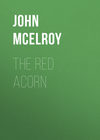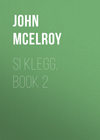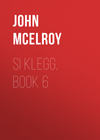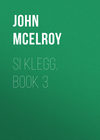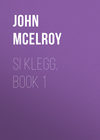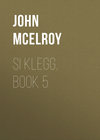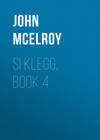Czytaj książkę: «The Red Acorn», strona 11
“O, that is SO good,” murmured the boy, half-unclosing his eyes. “It’s just as mother would’ve done.”
Dr. Denslow looked earnest approval.
Rachel began to feel an interest kindling in her work. It was not in a womanly nature to resist this cordial appreciation of all she did.
A few cots farther on a boy wanted a letter written home. She was provided with stationary, and taking her place by the side of the cot, received his instructions, and wrote to his anxious parents the first news they had from their only son since they had been informed, two weeks before, that he had been sent to the hospital. When she had finished she rejoined the Doctor, who had by this time nearly completed his round of the ward. As soon as he was through he dismissed Stewards and Wardmasters to their duties, and returned with her to her room. It was so changed that she thought she had made a mistake when she opened the door. The time of her absence had been well employed by a detail of men, whom the Doctor had previously instructed. The floor was as white and clean as strong arms with an abundance of soap and hot water could scrupt it, the walls and ceiling were neatly papered with “Harper’s Weeklies,” and “Frank Leslies,” other papers concealed the roughness of the table and shelves, white sheet and pillow-cases had given the cot an air of inviting neatness, and before it lay a square of rag carpet. The window was shaded with calico curtains, the tin basin and dipper had been scoured to brightness, and beside them stood a cedar water-pail with shining brass hoops.
“Ah,” she said, with brightening face, “this is something like living.”
“Yes,” answered Dr. Denslow, “I imagine it IS some improvement upon the sandy desert in which you spent the night. I hope we will soon be able to make it still more comfortable. We have just started this hospital, and we are sadly destitute of many of the commonest necessaries of such an institution. But everything will get better in a week or so, and while I can not exactly promise you the comforts of a home, I can assure you that life will be made more endurable than it seems to be possible now.”
“I do hope none of this has been taken away from any sick man who needs it more than I?” said Rachel, with a remembrance of how much the boys in the ward needed.
“Do not disturb yourself with any such thought. Your comfort has not been bought at the expense of any one else’s. I would not give, even to you, anything that would help restore a sick soldier to his regiment or his home. My first duty, as that of yours and all of us, is to him. He is the man of the occasion. All the rest of us are mere adjuncts to him. We have no reason for being, except to increase his effectiveness.”
The earnestness with which he spoke, so different from his light bantering at the breakfast table, made her regard him more attentively.
“I begin to get a glimmering,” she said at length, “of the inspiration in this kind of work. Before it has all seemed unutterably repulsive to me. But it has its rewards.”
“Yes,” said he, lapsing still deeper into a mood which she soon came to recognize in him as a frequent one of spiritual exaltation, “we who toil here, labor amidst the wreck and ruin of war without the benefit of that stirring impulse which fills the souls of those who actually go into battle. The terrors of human suffering which they see but for an instant, as when the lightning in the night shows the ravages of the storm, encompass us about and abide with us continually. We are called upon for another kind of fortitude, and we must look for our reward otherwise than in the victor’s laurels. We can only have to animate us our own consciousness of a high duty well done. To one class of minds this is an infinitely rich meed. The old Jewish legend says that Abrahams principal jewel was one worn upon his breast, ‘whose light raised those who were bowed down, and healed the sick,’ and when he passed from earth it was placed in heaven, where it shown as one of the great stars. Of such kind must be our jewel.”
He stopped, and blushing through his beard, as if ashamed of his heroics, said with a light laugh:
“But if there is anything I fear it is self-righteousness which cankereth the soul. Come; I will show you a sight which will repress any tendency you may ever feel to exalt your services to the pinnacle of human merit.”
While leading her to a remote part of the hospital he continued: “Of course greater love hath no man than this, that he gave his life for that which he loves. Considered relatively to the person the peasant who falls in the defense of his country gives just as much as the Emperor who may die by his side. In either case the measure of devotion is brim-full. Nothing more can be added to it. But there are accessories and surroundings which apparently make one life of much greater value than another, and make it a vastly richer sacrifice when laid on the altar of patriotism.”
“There are certainly degrees of merit, even in yielding up one’s life,” said Rachel, not altogther unmindful of the sacrifice she herself had made in coming to the front.
“Judged by this standard,” the Doctor continued, “the young man whom we are about to see has made a richer offering to his country than it is possible for most men to make. It is almost shames me as to the meagerness of the gift I bring.”
“If you be ashamed how must others who give much less feel?”
“He was in the first dawn of manhood,” the Doctor went on, without noticing the interruption, “handsome as a heathen god, educated and wealthy, and with high aspirations for a distinguished scientific career fermenting in his young blood like new wine. Yet he turned his back upon all this—upon the opening of a happy married life—to carry a private soldier’s musket in the ranks, and to die ingloriously by the shot of a skulking bushwhacker. He would not even take a commission, because he wanted that used to encourage some other man, who might need the inducement.”
“But why call his death inglorious? If a man braves death why is any one time or place worse than another?”
“Because for a man of his temperament he is dying the cruelest death possible. He had expected, if called upon to yield his life, to purchase with it some great good for his country. But to perish uselessly as he is doing, as if bitten by a snake, is terrible. Here we are. I will tell you before we go in that he has a bullet wound through the body, just grazing an artery and it is only a question of a short time, and the slightest shock, when a fatal hemorrhage will ensue. Be very quiet and careful.”
He untied a rope stretched across the entrance to a little wing of the building to keep unnecessary footsteps at a distance.
“How is he this morning?” he asked of a gray-haired nurse seated in front of a door curtained with a blanket.
“Quiet and cheeful as ever,” answered the nurse, rising and pulling the blanket aside that they might enter.
The face upon which Rachel’s eyes fell when she entered the room impressed her as an unusual combination of refinement and strength. Beyond this she noted little as to the details of the patient’s countenance, except that he had hazel eyes, and a clear complexion asserting itself under the deep sun-burning.
When they entered he was languidly fanning himself with a fan which had been ingeniously constructed for him by some inmate, out of a twig of willow bent into a hoop, and covered by pasting paper over it. He gave a faint smile of welcome to the Doctor, but his face lighted up with pleasure when he saw Rachel.
“Good morning, Sanderson,” said Dr. Denslow, in a repressed voice. “How do you feel?”
“As usual,” whispered Sanderson.
“This is Miss Rachel Bond, who is assigned to our hospital as nurse.”
A slight movement of Sanderson’s head acknowledged Rachel’s bow.
“I am so glad to see you,” he whispered, taking hold of her hand. “Sit down there, please.”
Rachel took the indicated seat at the head of the cot.
“Doctor,” inquired Sanderson, “is it true that McClellan has had to fall back from before Richmond?”
“I have tried hard to keep the news from you,” answered Dr. Denslow, reluctantly. “I feat it is too true. Let us hope it is only a temporary reverse, and that it will soon be more than overcome.”
“Not in time for me,” said Sanderson, in deep dejection. “I have lived several days merely because I wanted to see Richmond taken before I died. I can wait no longer.”
The Doctor essayed some confused words of encouragement, but stopped abruptly, and feigning important business in another part of the hospital, hurried out, bidding Rachel await his return.
When he was gone Sanderson lifted Rachel’s hand to his lips, and said with deep feeling:
“I am so glad you have come. You remind me of her.”
The ebbing life welled up for the last time into such ardent virility that Rachel’s first maidenly instinct was to withdraw her hand from his earnest pressure and kiss.
“No, do not take your hand away,” he said eagerly. “There need be no shame, for I shall be clay almost before you flush has had time to fade. I infringe on no other’s rights, for I see in you only another whom you much resemble.”
Rachel suffered her hand to remain within his grasp.
“I would that she knew as you do, that I died thinking of her, next to my country. You will write and tell her so. The Doctor will give you her address, and you can tell her, as only a woman can tell another what the woman-heart hungers for, of my last moments. It is so much better that you should do it than Dr. Denslow, even, grand as he is in every way. You will tell her that there was not a thought of repining—that I felt that giving my life was only partial payment to those who gave theirs to purchase for me every good thing that I have enjoyed. I had twenty-five years of as happy a life as ever a man lived, and she came as its crowning joy. I look forward almost eagerly to what that Power, which has made every succeeding year of my life happier than the previous one, has in store for me in the awakening beyond. Ah, see there! It has come. There goes my life.”
She looked in the direction of his gaze, and saw a pool of blood slowly spreading out from under the bed, banking itself against the dust into miniature gulfs and seas. The hand that held hers relaxed, and looking around she saw his eyes closed as if in peaceful sleep.
Dr. Denslow entered while she still gazed on the dead face, and said:
“I am so sorry I left you alone. I did not expect this for some hours.”
“How petty and selfish all my life has been,” said Rachel, dejectedly, as they left the room.
“Not a particle more than his was, probably,” said Dr. Denslow, “until his opportunity came. It is opportunity that makes the hero, as well as the less reputable personage, and I have no doubt that when yours comes, you will redeem yourself from all blame of selfishness and pettiness.”
Chapter XVI. The Ambuscade
This heavy-headed revel, east and west,
Makes us traduced and taxed of other nations;
They clepe us drunkards, and with swinish frase
Soul our addition: and indeed it takes
From our achievements, though performed at hight,
The pith and marrow of our attribute.
—Hamlet.
The day spent with Aunt Debby had been of the greatest benefit to Harry Glen. Since his parting with Rachel Bond, there had been going on in his spirit a fermentation like that with which good wine discharges itself of its grossness and impurities, and becomes clear and fine. In this process had vanished the absorbing selfishness of a much-indulged only son, and teh supercilious egotism which came as an almost necessary result of his college curriculum. This spiritual ripening received its perfecting color and bloom from the serene exaltation of Aunt Debby’s soul. So filled was she with lofty devotion to the cause, so complete her faith in its holiness, and so unquestioning her belief that it was every one’s simple duty to brave all dangers for it, and die if need be without a murmur, that contact with her would have inspired with pure patriotic ardor a nature much less ready for such leavening than Harry’s.
As Dr. Denslow had surmised, his faults were mainly superficial, and underneath them was a firm gristle of manhood, which would speedily harden into bone. With the experience he had been having, days would mature this as rapidly as ordinary years. He was himself hardly aware of the transformation, but only felt, as his physical exhaustion disappeared, a new eagerness to participate in the great work of the war. He was gratified to know a little later that this was no transient feeling. In the course of the evening Jim Fortner came back in, with Kent Edwards and Abe Bolton. After they had all satisfied their hunger, Fortner informed Harry and Aunt Debby that the enemy had fallen back to London, from which point he was sending out wagons into the surrounding country, to gather up food, forage, arms, clothing, ammunition, etc., with the double object of depriving the Union men of them, and adding the same to the Rebel resources. A long train had also been sent out to the Goose Creek Salt Works—twenty-five miles northeast of London—to bring away a lot of salt stored there, of which the Rebels had even more need than of food.
Fortner proposed to go out in the morning, and endeavor to capture some of these wagons. It seemed altogether probably that a few might be caught in such a position that their guards could be killed or driven off.
All readily agreed to this plan, Aunt Debby leading off by volunteering to ride ahead on her mare, as a scout.
Harry suddenly remembered that he was weaponless. “What shall I do for a gun?” he asked, anxiously.
“I declar, I done forgot all ‘bout gittin’ ye a gun,” said Fortner with real concern. “My mind was disturbed by other things,” he added with a suspicion of a grin at Edwards and Bolton; but they were leaning back in their chairs fast asleep. Apple jack, fatigue and a hearty supper together made a narcotic too potent to resist.
Fortner rose, spread a few blankets on the floor, added a sack of bran for a pillow, and with some difficulty induced the two sleepers to lie down and take their slumbers in a more natural position.
“I’ll find ye a gun,” said Aunt Debby, as this operation was finished, and walking to a farther corner of the room, she came back bearing in her hand a rifle very similar to the one Fortner carried.
“Thar,” she said, setting the delicately-curved brazen heel down upon the hearth, and holding the muzzle at arm’s length while she gazed at the gun with the admiration one can not help feeling for a magnificent weapon, “is ez true a rifle ez ever a man put to his shoulder. Ef I didn’t b’lave ye ter be ez true ez steel ye shouldn’t tech hit, fur hit b’longed ter the truest man in this livin’ world.”
“Hit wuz her husband’s,” explained Fortner, as her lips met firmly, as if choking down bitter memories.
“I’m givin’ hit ter ye ter use ez he’d a-used hit ef he war a-livin’,” she said, steadying her tones with a perceptible effort. “I’m glad thet my hands can put inter yours the means ter avenge him.”
Harry tried in vain to make an appropriate response.
“I’ll clean hit up for ye,” she said to Harry, as she saw Fortner beginning to furbish up his own rifle for the next day’s duties.
That she was no stranger to the work was shown by the skill with which she addressed herself to it. Nothing that a Kentucky mountaineer does has more of the aspect of a labor of love, than his caring for a find rifle, and any of them would have been put to shame by the deftness of Aunt Debby’s supple hands. Removing the leathern hood which protected the lock, she carefully rubbed off the hammer and nipple with a wisp of soft fine tow, and picked out the tube with a needle. Wrapping another bit of tow around the end of a wiping-stick, she moistened it slightly in her mouth, and carefully swabbed out of the inside of the barrel every suspicion of dust and dirt. Each of the winding rifles was made clean and free along its whole course. Then the tow swab was lightly touched with sweet, unsalted goose-fat, that it might spread a rust-preventing film over the interior surface. She burnished the silver and brass ornaments, and rubbed the polished stock until it shone. When not a suspicion of soil or dirt remained any where, the delicate double triggers were examined and set so that they would yield at the stroke of a hair, a tuft of lightly-oiled tow was placed over the nipple and another closed the muzzle.
“Thar,” said Aunt Deby, setting the gun back against the logs, “is a rifle that’ll allers do hits duty, ef the man a-holt of hit does his. Let’s see how the ammunition is.”
The powder horn was found to be well filled with powder, and the box with caps, but there were only a few bullets.
“I’ll run ye some,” she said, taking from a shelf a small iron ladle, a few bars of lead, and a pair of bullet molds. “Fur more’n a hunderd years the women uv our fam’ly hev run all the bullets our menfolks shot. They b’lieved hit made ‘em lucky. Granfather Fortner killed an Injun chief acrost the Maumee River at the battle of Fallen Timbers with a bullet thet Granmother hed run fur him an’ markt with a little cross. Afore the battle begun Granfather tuck the bullet outen his pouch an’ put hit inter his mouth, until he could git a chance ter use hit on big game. He brot the chief’s scalp hum ter Granmother.”
“I believe the bullets you cast for me will do good service,” said Harry, with sincerity in his tones.
“I’m sartin of hit,” she returned, confidently. “I hev adopted ye in my heart ez a son, an’ I feel towards ye ez ef ye were raylly uv my own kin. I know ye’ll be a credit to yerself an’ me.”
While the lead was melting upon the bed of coals she drew out on the hearth, she sat in her low chair with her hands clasped about her knees, and her great gray eyes fixed upon the depths of a mass of glowing embers in the fireplace, as if she saw there vivid pictures of the past or revelations of the future.
“How wonderfully bright an’ glowin’ hit is in thar,” she said musingly; “hit’s purer an’ brighter then ennything else on arth. ‘Purified ez by fire,’ the Book says. My God, Thou has sent Thy fires upon me ez a sweepin’ flood. Hev they purified me ez Thou wisht? How hit shines an’ glows away in thar! Hit seems so deep sometimes thet I kin skeercely see the end. A million times purer an’ brighter is the light thet shines from the Throne uv God. THEY’RE lookin’ at thet now, while I still tarry heah. Husband an’ son, when will I go to ye? When will I finish the work the Lord hez fur me ter do? When will the day uv my freedom come? May-be to-morrer—may-be to-morrer.”
She began singing softly:
“An’ when a shadder falls acrost the winder
Of my room,
When I am workin’ my app’inted task,
I lift my head to watch the door an’ ask
If he is come;
An’ the angel answers sweetly
In my home:
‘Only a few more shadders
An’ He will come.’”
“Aunt Debby, honey,” said Fortner, rousing himself from a nap in his chair, “thet thar lead’s burnin’. Better run yer bullets.”
She started as if waked from a trance, pressed her slender thin hands to her eyes for an instant, and then taking the molds up in her left hand she raised the ladle with her right, filled them from it, knocked the molded balls out by a tap on the floor, and repeated the process with such dexterous quickness that she had made fifty bullets before harry realized that she was fairly at work.
“Ye men hed better lay down an’ git some sleep,” she said, as she replaced the molds and ladle on the shelf. “Ye’ll need all yer strength to-morrer. I’ll neck these bullets, an’ git together some vittles fur the trip, an’ then I’ll lay down a while. We orter start airly—soon arter daybreak.”
They did start early the next morning, with Aunt Debby riding upon the roads that wound around the mountain sides, while Fortner led the men through the shorter by-paths.
Noon had passed some hours, and yet they had come across no signs of wagons. Aunt Debby was riding along a road cut out of the rocks about mid-way up the mountain. To her right the descent was almost perpendicular for a hundred feet or more to where a creek ran at the bottom of a cliff. To her left the hill rose up steeply to a great height. Fortner and the others saw Aunt Debby galloping back, waving the red handkerchief which was her signal of the approach of a wagon. After her galloped a Rebel Sergeant, with revolver drawn shouting to her to stop or he would fire. Abe Bolton stepped forward impulsively to shoot the Rebel, missed his footing, and slid down the hill, landing in the road with such force as to jar into unintelligibility a bitter imprecation he had constructed for the emergency. He struck in front of the Sergeant, who instantly fired at Aunt Debby’s mare, sending a bullet through the faithful animal, which sank to her knees, and threw her rider to the ground. Without waiting to rise, and he was not certain that he could, Abe fired his musket, but missed both man and horse. He scrambled to his feet, and ran furiously at the Rebel with raised gun. The Sergeant fired wildly at him, when Bolton struck the animal a violent blow across the head. It recoiled, slipped, and in another instant had fallen over the side of the road, and crushed his rider on the rocks below. Five of the wagon-guard who were riding ahead of the wagon galloped forward at the sound of the shots. Fortner, Edwards and Harry Glen fired into these, and three saddles were emptied. The remaining two men whirled their horses around, fired wildly into the air, and dashed back upon the plunging team, with which the driver was vainly struggling. The ground quivered as the frightened animals struck together; they were crushed back upon their haunches, and beat one another cruelly with their mighty hoofs. Wagon, horses and men reeled on the brink an agonizing instant; the white-faced driver dropped the lines and sprang to the secure ground; the riders strained with the energy of deadly fear to tear themselves loose from their steeds, but in vain. Then the frantic mess crashed down the jagged rocks, tearing up the stunted cedars as if they were weeds, and fell with a sounding splash on the limestone bed of the shallow creek.
Fortner, Glen and Edwards came down as quickly as possible, the latter spraining his ankle badly by making a venturesome leap to reach the road first. They found a man that Fortner had shot at stone dead, with a bullet through his temple. The other two had been struck in the body. Their horses stood near, looking wonderingly at their prostrate masters.
Bolton was rubbing his bruises and abrasions, and vituperating everything, from the conduct of the war to the steepness of Kentucky mountains. Aunt Debby had partially recovered from the stunning of her fall, and limped slowly up, with her long riding-skirt raised by one hand. Her lips were compressed, an her great gray eyes blazed with excitement.
They all went to the side of the road, and looked down at the crushed and bleeding mass in the creek.
“My God! that’s awful,” said Henry, with a rising sickness about his heart, as the excitement began subsiding.
“Plenty good enuf fur scoundrels who rob poor men of all they hev,” said Fortner fiercely, as he re-loaded his rifle. “Hit’s not bad enuf fur thieves an’ robbers.”
“Hit’s God’s judgement on the wicked an’ the opporessor,” said Aunt Debby, with solemn pitilessness.
“Hadn’t we better try to get down there, and help those men out?” suggested Harry. “Perhaps they are not dead yet.”
“Aunt Debby, thet thar hoss thet’s rain’ his head an’ whinnyin’,” said Fortner, with sudden interest, “is Joel Sprigg’s roan geldin’, sho’s yore bo’n, honey.” He pointed to where a shapely head was raised, and almost human agony looked out of great liquid eyes. “Thet wuz the finest hoss in Laurel County, an’ they’ve stole ‘im from Joel. Hit’ll ‘bout break his heart, fur he set a powerful sight o’store on thet there beast. Pore critter! hit makes me sick ter see ‘im suffer thet-a-way! I’ve a mind ter put ‘im outen his misery, but I’m afeered I can’t shoot ‘im, so long ez he looks at me with them big pitiful eyes o’ his’n. They go right ter my heart.”
“You’d better shoot him,” urged Aunt Debby. “Hit’s a si ter let an innocent critter suffer thet-a-way.”
Fortner raised his rifle, and sent a bullet through the mangled brute’s brain.
Aunt Debby’s eyes became fixed on a point where, a mile away down the mountain, a bend in the road was visible through an opening in the trees.
“Look out,” she said, as the echoes of the shot died away, “thar comes a hull lot on ‘em.”
They looked and saw plainly a large squad of cavalry, with a wagon behind.
“We must get outen heah, an’ thet quick,” said Fortner decisively. He caught one of the horses and shortened a stirrup to make the saddle answer for a side-saddle. “Heah, Aunt Debby, let me help ye up, honey. Now Bolton and Edwards, I’ll help ye on these ere other critters. Now skeet out ez fast ez the hosse’s legs will tote ye. Don’t spar ‘em a mite. Them fellers’ll gin ye to the devil’s own chase ez soon ez they get heah, an’ see what’s bin done. Glen and me’ll go acrost the mounting, an’ head ‘em off on t’other side. Don’t come back ef ye heah shootin’, but keep straight on, fur we kin take keer o’ this crowd without enny help. Glen, you sasshay up the mounting thar ez fast ez the Lord’ll let ye. I’ll be arter ye right spry.”
All sped away as directed. Fortner had been loading his gun while speaking. He now rammed the bullet home, and withdrawing his rammer walked over to the cliff beside which the teamster was cowering.
“O, Mister Fortner, don’t kill me—please don’t!” whined the luckless man, getting awkwardly upon his knees and raising his hands imploringly. “I swar ter God I’ll never raise a hand agin a Union man agin ef ye’ll only spar my life.”
“Kill ye, Pete Hoskins!” said Fortner with unfathomable contempt. “What consete ye hev ter think yer wuth the powder an’ lead. I hain’t no bullets ter waste on carr’on.”
He struck the abject fellow a couple of stinging blows on the face with the ramrod, replaced it in the thimbles, and sprang up the rocks just as the head of the cavalry appeared around the bend of the road a few rods away.
Overtaking Harry shortly, he heard about the same time the Rebels on the road below strike into a trot.
“They know hit all now,” he said, “an’ hev started in chase. Let’s jog on lively, an’ get ter whar we kin head ‘em off.”
Night had fallen in the meantime, but the full moon had risen immediately, making it almost as light as day.
After half an hour’s fast walking, the two Unionists had cut across the long horseshoe around which the Rebels were traveling, and had come down much ahead of them on the other side of the mountain, and just where the road led up the steep ascent of another mountain.
There was a loneliness about the spot that was terrible. Over it hung the “thought and deadly feel of solitude.” The only break for miles in the primeval forest was that made for the narrow road. House or cabin there was none in all the gloomy reaches of rocks and gnarled trees. It was too inhospitable a region to tempt even the wildest squatter.
The flood of moonlight made the desolation more oppresive than ever, by making palpable and suggestive the inky abysses under the trees and in the thickets.
Fortner looked up the road to his right and listened intently.
A waterfall mumbled somewhere in the neighborhood. The pines and hemlocks near the summit sighed drearily. A gray fox, which had probably just supped off a pheasant, sat on a log and barked out his gluttonous satisfaction. A wildcat, as yet superless, screamed its envy from a cliff a half a mile away.
“I can’t heah anything of Aunt Debby an’ the others,” said Fortner, at length; “so I reckon they’re clean over the mounting, an’ bout safe by this time. Them beasts are purty good travelers, I imagine, an’ they hain’t let no grass grow in under the’r hufs.”
“But the Rebels are coming, hand over hand,” said Harry, who had been watching to the left and listening. “I hear them quite plainly. Yes, there they are,” he continued, as two or three galloped around a turn in the road, followed at a little interval by others.
The metallic clang of the rapid hoof-beats on the rocks rang through the somber aisles of the forest. Noisy fox and antiphonal wildcat stopped to listen to this invasion of sound.
“Quick! let’s get in cover,” said Fortner.
“Ye make fur thet rock up thar,” said Fortner to Harry, pointing to a spot several hundred yards above them, “and stay thar tell I come. Keep close in the shadder, so’s they won’t see ye.”
“It seems to me that I ought to stay with you,’ said Harry, indecisively.
“No; go. Ye can’t do no good heah. One’s better nor two. I’ll be up thar soon. Go, quick.”
There was no time for debate, and Harry did as bidden.
Fortner stepped into the inky shadow of a large rock, against which he leaned. The great broad face of the rock, gray from its covering of minute ash-colored lichens, was toward the pursuers, and shone white as marble in the flood of moonlight. The darkness seemed banked up around him, but within his arm’s length it was as light as day. The long rifle barrel reached from the darkness into the light, past the corner of the rock against which it rested. The bright rays made the little “bead” near the muzzle gleam like a diamond, and lighted up the slit as fine as a hair in the hind-sight. Three little clicks, as if of twigs breaking under a rabbit’s foot, told that the triggers had been set and the hammer raised.
The horsemen, much scattered by the pursuit, clattered onward. In ones and twos, with wide intervals between, they reached along a half-mile of the road. Two—the best mounted—rode together at the head. Two hundred yards below the great white rock, which shone as innocent and kindly as a fleecy Summer cloud, a broad rivulet wound its way toward the neighboring creek. The blown horses scented the grateful water, and checked down to drink of it. The right-hand rider loosened his bridle that his steed might gratify himself. The other tightened his rein and struck with his spurs. His horse “gathered,” and leaped across the stream. As the armed hoofs struck sparks from the smooth stones on the opposite side, the rider of the drinking horse saw burst out of the white rock above them a gray cloud, with a central tongue of flame, and his comrade fell to the ground.
